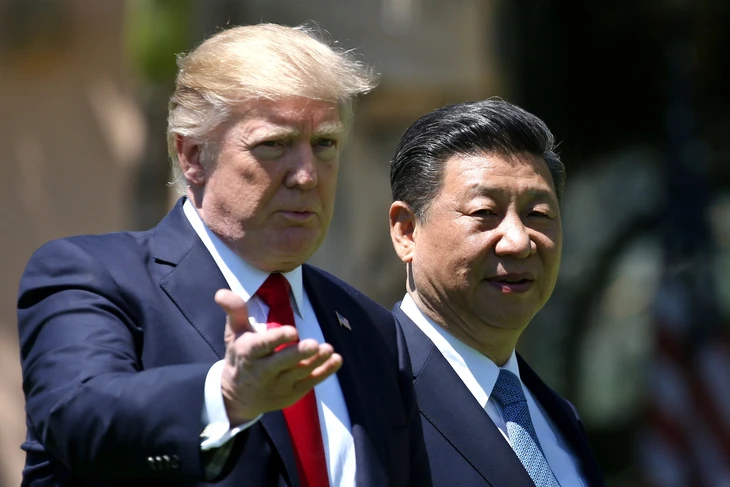
US President Donald Trump during his first official meeting with Chinese President Xi Jinping in 2017 - Photo: REUTERS
On April 22, US President Donald Trump suddenly changed his stance, declaring that the US would not pursue a "tough" stance in tariff negotiations with China. Mr. Trump also mentioned the possibility of "drastically reducing" the 145% tax currently applied to Chinese goods, if the negotiation process makes progress.
On the same day, US Treasury Secretary Scott Bessent also admitted to investors that the current stalemate in tariff tensions with China is "difficult to maintain in the long term", and predicted that this confrontation may "cool down" in the near future.
America's Burden
According to the Global Times on April 24, many international media outlets commented that recent "soft" statements show that the Washington administration is trying to change its stance to reduce the negative impact of the trade war, in the context of the US economy's growth forecast being lowered and the financial market facing many unstable risks.
As the unprecedented tariff war is causing many consequences for the US economy, Mr. Trump is forced to adjust his public message to soothe market sentiment and reassure domestic public opinion, Le Monde (France) commented.
According to CNN, in a private meeting with Mr. Trump on April 21, CEOs of American retail corporations such as Walmart, Target, Lowe's and Home Depot expressed concerns about the negative economic consequences that could arise from imposing high tariffs on Chinese goods.
The tariff confrontation between China and the US may impose a heavier burden on the US than on China, according to a report by the Nikkei newspaper (Japan) on April 22.
Accordingly, Nikkei said the reason is that the US is too dependent on Chinese products, including items such as smartphones and common consumer products such as toys such as Barbie dolls.
Specifically, in 2024, 81% of smartphones imported into the US will come from China, with a total value of up to 41.3 billion USD. For laptops, China accounts for 66% of total imports, equivalent to 32.6 billion USD. In the electric vehicle sector alone, 69% of lithium-ion batteries are imported from China, worth about 16.2 billion USD, according to the Financial Times (UK).
Meanwhile, China has been proactive in diversifying its agricultural imports from the US to Brazil. According to Nikkei , since 2023, China has imported twice as much soybeans from Brazil as the US ($40 billion), showing Beijing's reduced dependence on Washington.
China defensive or winning?
Sina Finance on April 20 quoted Chinese economist Liu Yuhui as saying that China is implementing a long-term strategy based on three more directions, including more openness, more balance and further increasing the role of the market.
However, within China, concerns are also beginning to emerge about the impact of a prolonged trade war.
An unnamed Chinese foreign policy expert told CNN that if the 145% tariff continues, China's foreign trade will be severely affected, leading to the risk of increased unemployment and social unrest.
From a strategic perspective, Nikkei commented that China is actively taking advantage of the tense situation to expand relations with ASEAN countries and promote the diversification of import and export markets. This is considered a step showing flexibility in adapting to changes in geopolitics and global trade.
However, the Chinese economy is still under great pressure from the real estate crisis and falling consumer demand. CNN said that China's 2025 growth target of 5% is ambitious, but economists also said that this target will be difficult to achieve if China's trade continues to be stifled by tariffs.
Professor Wang Yiwei of Renmin University (China) commented to CNN that if China shows any signs of concession at this time, Mr. Trump could see it as a success of the pressure tactic and will increase the pressure.
Sharing the same view, Professor Ngo Tam Ba of Fudan University (China) commented that Beijing is choosing a "no rush" strategy to maintain the initiative and wait for a more favorable time for negotiations.
This shows that China does not really hold absolute superiority, but is choosing to maintain a proactive defensive position, while exploiting internal pressures in the US as a favorable factor to strengthen its position in the negotiation process.
In the context that both China and the US are facing internal limitations, prolonging trade tensions could cause deep damage to both major economies.
Source: https://tuoitre.vn/my-dieu-chinh-lap-truong-thue-quan-trung-quoc-co-dang-chiem-uu-the-20250424232707323.htm



![[Photo] Prime Minister Pham Minh Chinh attends the groundbreaking ceremony of Trump International Hung Yen Project](https://vphoto.vietnam.vn/thumb/1200x675/vietnam/resource/IMAGE/2025/5/21/ca84b87a74da4cddb2992a86966284cf)
![[Photo] Determining the pairs in the team semi-finals of the National Table Tennis Championship of Nhan Dan Newspaper](https://vphoto.vietnam.vn/thumb/1200x675/vietnam/resource/IMAGE/2025/5/21/eacbf7ae6a59497e9ae5da8e63d227bf)
![[Photo] Scientific workshop "Building a socialist model associated with socialist people in Hai Phong city in the period of 2025-2030 and the following years"](https://vphoto.vietnam.vn/thumb/1200x675/vietnam/resource/IMAGE/2025/5/21/5098e06c813243b1bf5670f9dc20ad0a)

![[Photo] Prime Minister Pham Minh Chinh receives Rabbi Yoav Ben Tzur, Israeli Minister of Labor](https://vphoto.vietnam.vn/thumb/1200x675/vietnam/resource/IMAGE/2025/5/21/511bf6664512413ca5a275cbf3fb2f65)


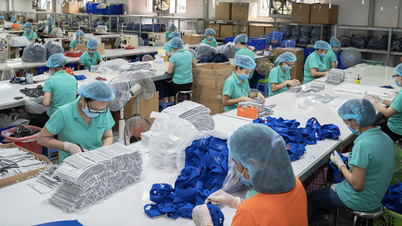
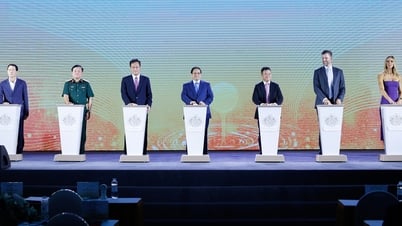

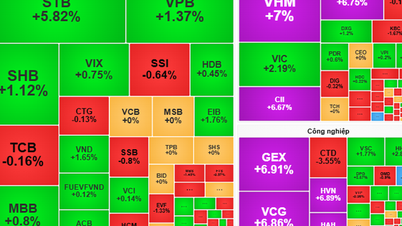








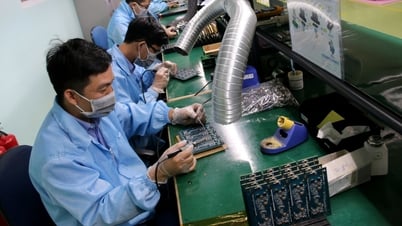



































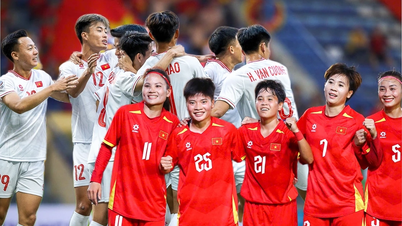

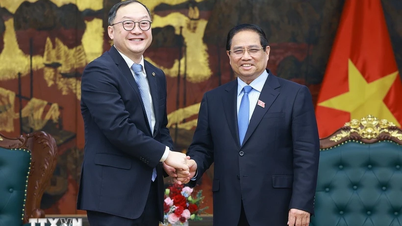







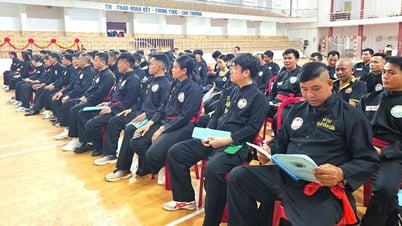


























Comment (0)